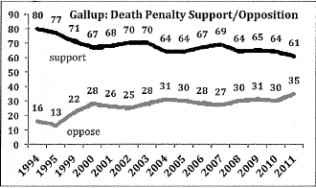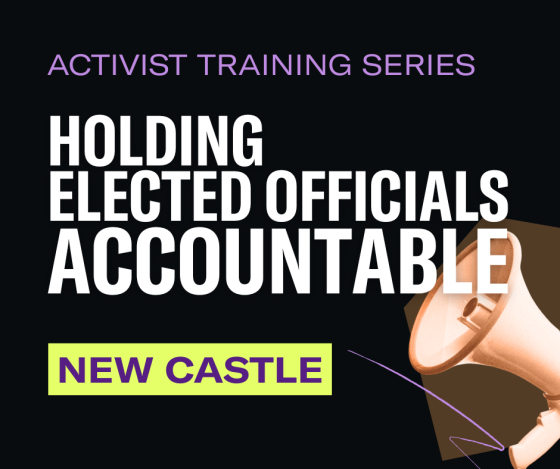Death sentences increased in Delaware from one to two in 2011, bucking the national trend of declined use, the ACLU of Delaware said today. This year marked the first year since the death penalty was reinstated in 1976 that the country had fewer than 100 death sentences, according to a report released by the Death Penalty Information Center (DPIC).
Executions in Delaware also increased, with the state ending their near six year unofficial moratorium in 2011 with the execution of Robert Jackson in July. Nationwide, there were 43 executions in 2011 and 46 in 2010, representing a 56 percent decrease since 1999, when there were 98.
Delaware is out of step with the national trends. Instead of moving away from capital punishment, we are pushing forward with its use. We do not need state killing to keep our communities safe.”
-Kathleen MacRae, executive director, ACLU of Delaware
The number of states with the death penalty continued to decline in 2011. Illinois followed New Mexico, New Jersey, and New York in ending the death penalty, marking an 11 percent decline in death penalty states since 2007.
Oregon Governor John Kitzhaber placed a moratorium on executions in the state, after having overseen two executions in the 1990s, calling the death penalty “an expensive and unworkable system that fails to meet basic standards of justice.”
Also this year, many Americans were shocked by the execution of Troy Davis in Georgia. Several key witnesses who testified against Davis changed their stories after his trial and his guilt was far from certain. Even death penalty supporters like former U.S. Rep. Bob Barr concluded: “Imposing a death sentence on the skimpiest of evidence does not serve the interest of justice.”
CNN, in an in-depth poll that gave respondents a choice between the death penalty and life without parole for those who commit murder; 50 percent of respondents chose life without parole and 48 percent chose the death penalty.
The Gallup Poll, which measures the public's support for the death penalty without offering alternatives, recorded the lowest level of support for and the highest level of opposition to the death penalty in 39 years.




